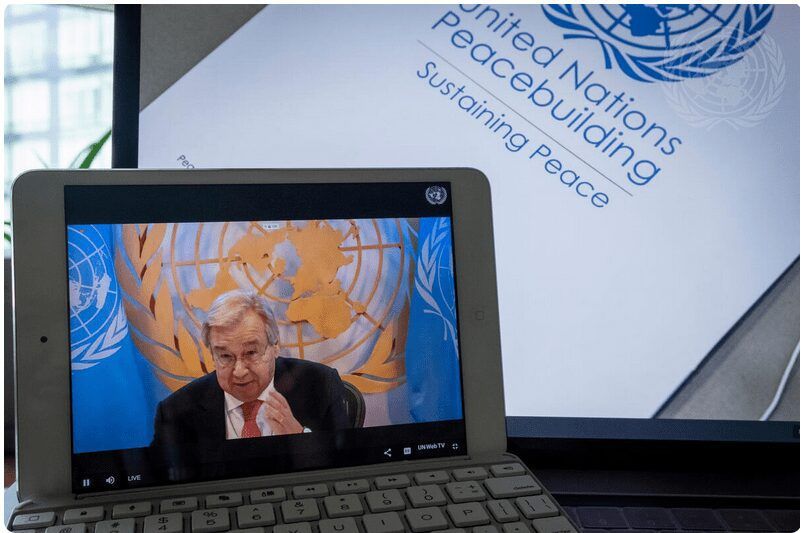Operationalizing the Prevention Agenda at the UN
Target audience of this project
- Member states and UN staff in New York
- At country level, UN staff and national and local actors charged with implementing a preventive approach
What we offer
- Unpacking prevention and finding common ground. The UN and its member states have yet to develop a concrete definition of what prevention entails, despite pervasive use of the term. Through research, interviews, and country visits, we have unpacked different interpretations of prevention in order to find the common ground among diverse views.
- Creating the political space for prevention. Different interpretations of prevention trigger different political sensitivities. CIC has created a space to make progress on an upstream prevention approach that benefits from broad political support.
- Developing options for operationalization. While member states agree on the importance of prevention, UN staff often struggle to operationalize it. CIC has identified some of the challenges they encounter and opportunities to overcome them.
What we do
- Dialogues with member states. CIC engages bilaterally with and organizes workshops for a group of geographically and politically diverse member states to discuss prevention in an informal setting and to advance towards more informed consensus.
- Dialogues with UN staff. CIC organizes workshops with UN staff across the whole system—including PBSO, agencies, funds, and programs (AFPs), peace and development advisors, the Secretariat—to discuss the operationalization of prevention.
- Policy briefs. CIC produces policy briefs on prevention to feed into political negotiations (for instance, the 2020 Peacebuilding Architecture Review) and support the operationalization of prevention.
- Briefing diplomats on prevention. CIC briefs diplomats in New York on prevention and supports effective negotiations.
Topics We Cover and Key Publications
Understanding the Underlying Causes of Violence for Smarter Prevention.
- Towards Effective Prevention: A Strategic Approach to Addressing the Underlying Causes of Violence and the UN’s Role, March 2025
- National Prevention Strategies: Exploring the Overlap Between Violent Extremism and Intra-State Conflict, March 2025
- Unusual Suspects: Overlooked Avenues for the Prevention of Recruitment Into Non-State Armed Groups, March 2025
- Acknowledging Differences: Five Reasons Why Using a Gender Lens in the PBAR Can Make Prevention and Peacebuilding More Impactful, February 2025
- Connecting Evidence and Policy for the Prevention of Armed Violence: New Tools for Practitioners and Policymakers, November 2024
- Pact for the Future: How to Turn Pledges on Addressing Root Causes of Violence Into Action, November 2024
National Prevention Strategies
- What Can the Peacebuilding Commission Do to Support National Prevention Strategies?, November 2024
- Building on What Exists: Demystifying National Prevention Strategies, October 2024
- Strengthening Violence Prevention at the UN: 11 Overlooked Facts, May 2024
- As Prevention Gains Momentum with UN Member States, What’s Next?, April 2024
- Why Should National Prevention Strategies Be in the Pact for the Future?, March 2024
- Mitigating the Impact of Foreign Interference: The Role of National Prevention Strategies, November 2023
- Seven Questions to Consider in Designing, Implementing, and Supporting Effective Nationally Led Violence Prevention Strategies, September 2023
- Now that National Prevention Strategies are in the New Agenda for Peace, what are the Next Steps?, July 2023
Unpacking Prevention
- Bridging the Silos: Integrating Strategies across Armed Conflict, Violent Crime, and Violent Extremism to Advance the UN’s Prevention Agenda, July 2021
- Development and Prevention: National Examples of Linkages, August 2019
- Breaking the Siloes: Pragmatic National Approaches to Prevention, August 2019
- Creating the Political Space for Prevention: How ECOWAS Supports Nationally Led Strategies, August 2019
- The Prevention Agenda: Mapping Out Member States’ Concerns, July 2019
- Nationally Led Prevention: Practical Examples of Approaches to Risk and Resilience, June 2019
- Unpacking prevention: Member State Perspectives, April 2019
Mental Health and Psychosocial Support (MHPSS) to Prevent Violence
- Mental Health and Psychosocial Support to Sustain Peace: 4 Areas to Explore for Improving Practice, April 2021
- Will the COVID-19 Pandemic Convince Us of the Critical Mental Health Dimension for Peacebuilding?, April 2020
Prevention and Political Negotiations
- Now that National Prevention Strategies are in the New Agenda for Peace, what are the Next Steps?, July 2023
- Four reasons why the New Agenda for Peace should focus on nationally led violence prevention strategies, September 2022
- Do Recommendations Really Have Influence?, April 2022
- Finding the Common Denominator: Member States and the Prevention Agenda in the 2020 Negotiations for the Peacebuilding Architecture Review, February 2021
- The New Secretary-General Report on Peacebuilding and Sustaining Peace: Prevention Back on the Agenda, September 2020
The COVID-19 Crisis and Violence Prevention
- How to be conflict sensitive in the midst of a pandemic? A case study on Colombia, July 2022
- Lessons from the COVID-19 Crisis: 6 Opportunities to Strengthen Conflict Sensitivity across the Humanitarian-Development-Peacebuilding Nexus, January 2022
- The Call for a New International Treaty to Improve Pandemic Response – an Opportunity to Foster Peace?, September 2021
- Briefing from Sarah Cliffe, Director of CIC, during the High-Level Open Debate of the UN Security Council: Pandemics and the Challenges of Sustaining Peace, August 2020
- Adopting a Sustaining Peace Lens to the COVID-19 Response, July 2020
- A “Do No Harm” Approach to COVID-19 Response: Examples From the Caribbean, April 2020
- Responding to COVID-19: The Need for Conflict Sensitivity, April 2020
